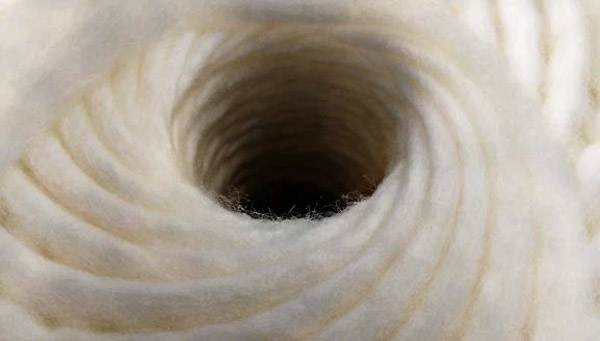Startup Finds a Way to Spin or Re-Spin All Types of Cellulose
![]() Print this Article | Send to Colleague
Print this Article | Send to Colleague
According to an article this week by Fast Company Business (New York, N.Y., USA) in a new pilot factory in Jyväskylä, Finland–a city surrounded by forests and known in part for its lumber and paper industries–a startup will soon begin to turn wood pulp into something new: a type of fabric that could eventually compete with cotton.
Making wood into fabric isn’t new, but older wood-based fabrics like rayon use harsh chemicals that can pollute water and poison workers. The new fabric, made by a startup called Spinnova, uses a mechanical process instead of chemicals; the only byproduct is evaporated water, which is reused in production. Unlike cotton, which uses massive amounts of water in areas often prone to droughts, it needs little water, no pesticides, and no farmland.
"We have to find better options for the future," says Janne Poranen, CEO and cofounder of Spinnova. Global demand for clothing and other textile products is growing, while cotton production isn’t keeping pace. Other fabrics, like polyester, add to microplastic pollution in water and rely on fossil fuels as a raw material.
The new process uses FSC-certified wood pulp that’s ground into a gel-like material called microfibrillated cellulose, which is made of tiny fibers. The material flows through the startup’s patented machinery to create a network of fibers that are spun and dried into a fluffy, firm wool that can be knit or woven into fabric and then made into clothing, shoes, or other textiles.
The startup is focusing on trees in part because of Finland’s abundance of sustainably managed forests, and has estimated that if the country’s annual harvest of wood was turned into fabric instead of paper and furniture, it could fully replace the world’s cotton production. (The forests are already producing more wood than is used by industry.) An investor in the company, a forestry company in Brazil that grows eucalyptus trees, will likely supply some of the first material.

The technology could also recycle clothing made out of the new textile, creating a closed loop. While the company is still testing recyclability, it’s likely that clothing could be fully recycled into more high-quality fiber, unlike most recycling, which tends to result in lower-quality materials. Right now, jeans and other cotton clothing that get recycled often end up as insulation, not new clothes. As recycling chops fibers, the materials usually degrade. But because Spinnova’s process relies on nano-sized fibers, it doesn’t hurt to grind up existing fabric, and it could be used to spin fiber out of any kind of cellulose, even cotton, so torn T-shirts and other clothing that often get trashed could find a better use. (The company has already successfully experimented with potato peels and straw.)
A researcher at VTT, the Technical Research Center of Finland, first began to develop the technology in 2009. Now, it’s on the cusp of commercialization. The startup plans to begin production in the pilot facility by the end of the year, in a space that won’t look like a traditional textile mill. "The whole production hall is almost like a hospital environment," says Poranen. "It’s very clean, it’s quiet." The goal of the pilot is to demonstrate that the process works at an industrial scale, and to make fiber that brands like Marimekko, one of the startup’s partners, can experiment with before moving into regular production.


